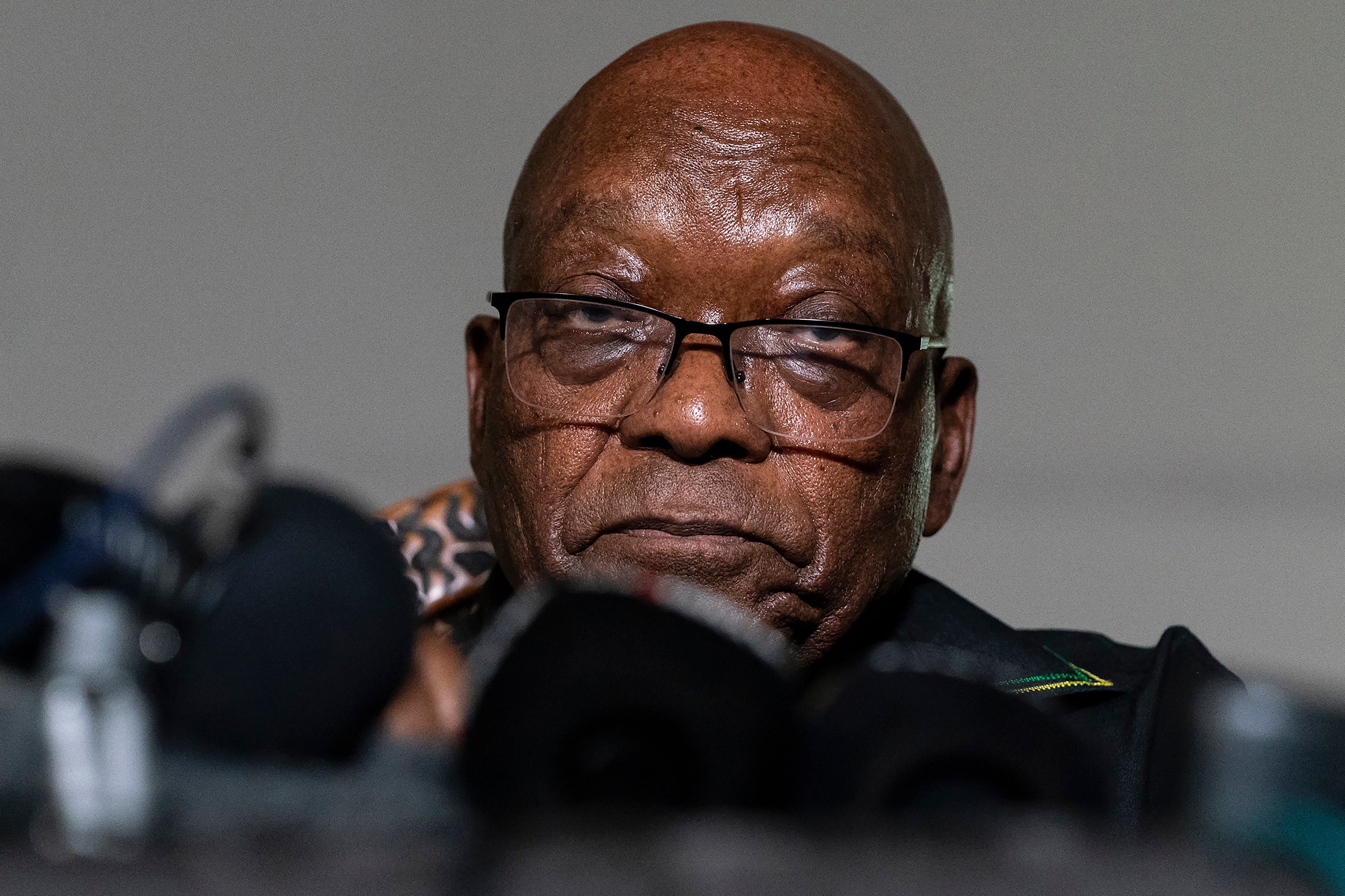Former South African president Jacob Zuma spends first night in prison after turning himself in to police
Jacob Zuma will serve a 15-month jail term for contempt of court

Your support helps us to tell the story
From reproductive rights to climate change to Big Tech, The Independent is on the ground when the story is developing. Whether it's investigating the financials of Elon Musk's pro-Trump PAC or producing our latest documentary, 'The A Word', which shines a light on the American women fighting for reproductive rights, we know how important it is to parse out the facts from the messaging.
At such a critical moment in US history, we need reporters on the ground. Your donation allows us to keep sending journalists to speak to both sides of the story.
The Independent is trusted by Americans across the entire political spectrum. And unlike many other quality news outlets, we choose not to lock Americans out of our reporting and analysis with paywalls. We believe quality journalism should be available to everyone, paid for by those who can afford it.
Your support makes all the difference.Former South African president Jacob Zuma has handed himself over to police and begun a 15-month prison sentence for contempt of court.
Zuma, 79, was admitted to Estcourt Correctional Centre in his home province of KwaZulu-Natal on Wednesday night. Television aired live footage of his motorcade entering the facility.
The end of the standoff marked the culmination of a long legal drama seen as a test of the post-apartheid state’s ability to enforce the rule of law.
Police spokesperson Lirandzu Themba confirmed in a statement that Zuma was in police custody, in compliance with the judgment of the Constitutional Court.
The court gave Zuma a 15-month jail term last week for defying an instruction earlier in February to give evidence at an inquiry into corruption during his nine years in power.
But Zuma showed defiance and urged a regional court on Tuesday to stop its order to the police to arrest him, saying he would pursue legal challenges against the prison sentence. His lawyers also asked the Constitutional Court on Wednesday to suspend the order.
Zuma’s initial resistance fuelled anger among his supporters. Hundreds of them, some armed with guns, spears and shields, gathered near his home to try to prevent his arrest. The reaction of his political camp exposed deep discord in the governing African National Congress party.
In the end, Zuma decided to go quietly. “President Zuma has decided to comply with the incarceration order,” his foundation said, the first time his camp had shown any willingness to cooperate with the court.
It was a remarkable fall for a revered veteran of the African National Congress liberation movement, who was jailed in 1963 by South Africa’s white minority rulers for his part in the ANC’s struggle to make everyone equal before the law, serving ten years alongside Nelson Mandela on Robben Island.
The Zondo Commission is examining allegations that he allowed three Indian-born businessmen, Atul, Ajay and Rajesh Gupta, to plunder state resources and influence government policy. He and the Gupta brothers, who fled to Dubai after Zuma was ousted in 2018, deny any wrongdoing.
He also faces a separate court case relating to a $2bn arms deal in 1999 when he was deputy president. He denies the charges.
Additional reporting by agencies
Join our commenting forum
Join thought-provoking conversations, follow other Independent readers and see their replies
Comments